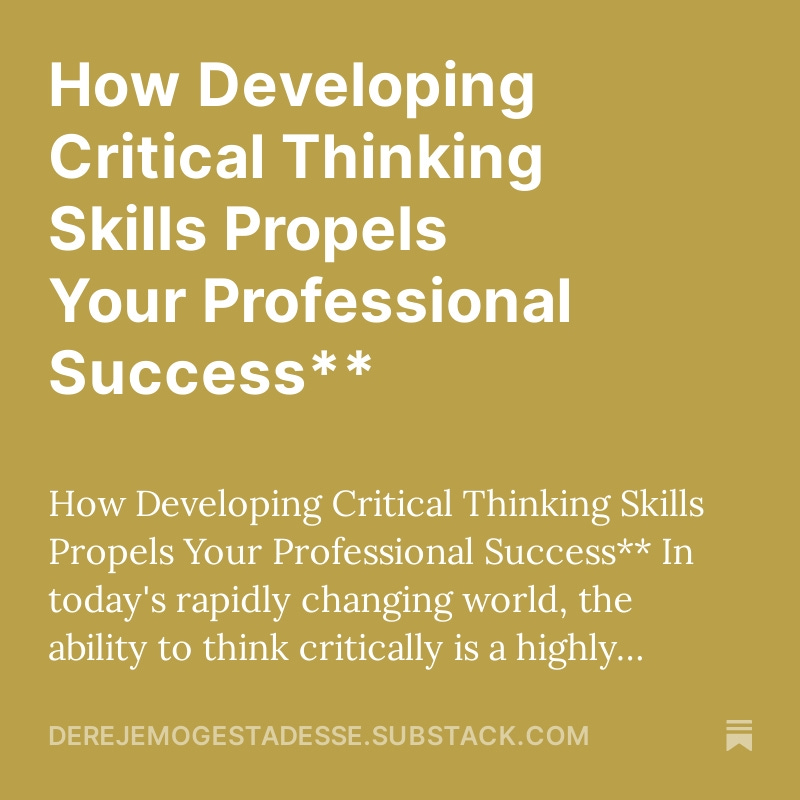How Developing Critical Thinking Skills Propels Your Professional Success**
How Developing Critical Thinking Skills Propels Your Professional Success**
In today's rapidly changing world, the ability to think critically is a highly sought-after skill across various professions. Critical thinking involves the ability to logically reason, objectively analyze, and evaluate information to form sound judgments and make informed decisions. This skill encompasses various dimensions and standards, as outlined in the Paul Elder model.
**The Paul Elder Model of Critical Thinking:**
1. **Elements of Thought (Reasoning):**
- This component involves the processes of reasoning, making connections between ideas, and forming conclusions based on evidence.
- Critical thinkers are able to identify the logical relationships in arguments and assess the validity and reliability of information.
2. **Intellectual Standards (Quality):**
- These standards guide the critical thinking process and include:
1. Intellectual humility: Being open to new perspectives and acknowledging the possibility of being wrong.
2. Courage: Asking tough questions and challenging assumptions, even when it's uncomfortable.
3. Empathy: Considering different viewpoints and seeking to understand the perspectives of others.
5. Integrity: Being honest with oneself and others, even when it's difficult.
6. Perseverance: Persisting in the face of challenges and setbacks.
3. **Intellectual Traits (Habits):**
- These traits result from the practice of critical thinking and include:
1. Raising vital questions: Probing deeper into the underlying assumptions and implications of issues.
2. Gathering and assessing relevant information: Seeking out and evaluating evidence from multiple sources.
3. Communicating effectively: Expressing ideas clearly, persuasively, and respectfully.
**Why Apply Critical Thinking?**
1. **Improves Problem-Solving Capabilities:**
- Critical thinkers can identify the root causes of problems, generate creative solutions, and anticipate potential consequences.
2. **Helps in Informed Decision-Making:**
- With critical thinking skills, individuals can analyze data, weigh pros and cons, and make well-reasoned decisions.
3. **Improves Analytical Skills:**
- Critical thinkers can break down complex issues into smaller, manageable parts and identify patterns and relationships.
4. **Fosters Creativity and Innovation:**
- Critical thinking encourages individuals to challenge assumptions, explore new possibilities, and come up with innovative solutions.
5. **Enhanced Professional Performance:**
- In any field, the ability to think critically can lead to increased productivity, efficiency, and effectiveness.
**Conclusion:**
Critical thinking is a crucial skill that propels professional success. By integrating the elements of thought, intellectual standards, and intellectual traits outlined in the Paul Elder model, individuals can cultivate a comprehensive and structured approach to problem-solving, decision-making, and innovation. Honing these skills can lead to enhanced professional performance, increased creativity, and the ability to navigate complex challenges with confidence.




